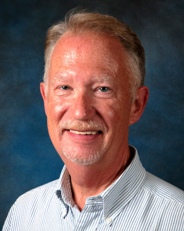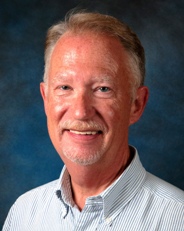 The writer C. S. Lewis, a devout agnostic in his youth, became convinced of the claims of faith only after a protracted struggle, the outcome of which left him “the most dejected and reluctant convert in all England.” The ultimate cause of Lewis’ change of heart became the title of his autobiography as well: against all odds, Lewis had been “Surprised By Joy.”
The writer C. S. Lewis, a devout agnostic in his youth, became convinced of the claims of faith only after a protracted struggle, the outcome of which left him “the most dejected and reluctant convert in all England.” The ultimate cause of Lewis’ change of heart became the title of his autobiography as well: against all odds, Lewis had been “Surprised By Joy.”
It’s an arresting choice of words. Not logic. Not theology. Not even truth-with-a-capital-T. The burning bush that irrevocably altered the course of Lewis’ life was an unexpected and totally unplanned encounter with something he could not predict, explain, or deny: joy.
I teach in Detroit. My university is located close to what was ground zero for some of the worst race riots of the 20th century, and although decades later the scars have faded some, it’s fair to say the city is fighting to stay alive. The automotive industry is still big business in Detroit, and so it should come as no surprise that reviews of new car models continue to get plenty of ink in both of Detroit’s daily newspapers.
And although the prospect of owning a new car remains something between a pipe dream and an outright fantasy (since I’m a musician who doesn’t play the lottery), I nevertheless read the new car reviews as avidly as the next person. Which is perhaps why the opening sentence of one in last week’s paper reminded me of Lewis–and caught me up short.
It read, in full, “I am surprised by beauty.”
Beauty, of course, is what we’re supposed to be all about as choral musicians. Creating and unleashing beauty is both our vocation and our business. Sharing the beauty we make with those who listen is the essence of our calling, our stock in trade. Beauty, in the end, is what we do. The chance to be touched by beauty is what motivates us. It fuels our score study, rehearsing and performing. It is the final payoff for all that we invest in the work we do.
Yet I think it’s still worth asking if we are surprised by beauty, especially as September marks the resumption of musical routines, because danger lurks in the comfort of the routine. I recall watching Leonard Bernstein rehearsing the New York Philharmonic when I was singing with the Westminster Choir in a performance of the Beethoven 9th.
The playing was technically precise but uninspired, until a despondent Bernstein said, “I know there was a time when you loved to make music. Perhaps in your childhood. Could you please go back to that place again?” They did, and the results were immediate.
There are links, I suspect, between childhood, first love, and the ability to be surprised by beauty. Perhaps it’s simply a question of novelty: children seem to live always on the edge of surprise, where everything is new and little is expected. The dubious achievement of being “grown up,” with all its attendant cynicism, has not yet infected their spirits or stolen away their souls.
Maybe that’s where the remedy for adult soul-sickness resides. One of my favorite Brahms lieder begins, “O wüßt ich doch den Weg zurück, den lieben Weg zur Kinderland” (Heimweh II, opus 62, text by Klaus Groth), which can be rendered, “Oh, if only I knew how to find the road back, the lovely path to childhood’s land.”
If only.
Certainly part of the solution is to be willing–or be willing to become willing–to live and think and act “as little children,” expectantly open to the possibility of beauty and wonder.
It is not an easy task, that. Making the decision to find and be found by beauty demands an intentional commitment, especially if there is accumulated scar tissue on our souls. Overcoming chronic cynicism is a daunting challenge, not something for the faint of heart. It takes real maturity to dare to become childlike, because we adults know all too well the reality of broken dreams and desert places, and no one has to teach us about them.
One way to begin the process (at least, one that works for me) comes from a prayer I learned in the early days of recovery: “Thank you for all you have given me; thank you for all you have taken away from me; thank you for all you have left me.” It’s the gratitude prayer, as I recall.
Cultivating an attitude of intentional gratitude can open the doors of the soul to see the world anew. Mother Teresa’s dictum–to do small things with great love–can help keep those doors open. Growing in what Buddhist teachers call mindfulness is yet another way to come to the place we long for: the place where we can once more be surprised by beauty, rather than taking the miraculous for granted.
When we do, our music-making will find a new freshness and honesty of expression.
It is worth the work, I think.
Dr. Jerry Custer teaches theory, composition, and choral literature at Wayne State University in Detroit, directs the music program at First Presbyterian Church in Farmington Hills, and conducts the Seaway Chorale & Orchestra in Trenton. With composer Blake Henson, he is the author of The Composer’s Craft: Practical Advice for Students and Teachers (GIA Publications). For more information, go to www.geraldcuster.com.

